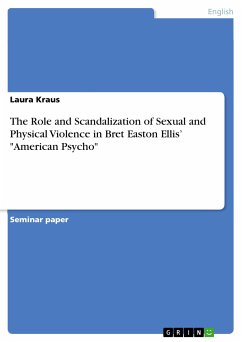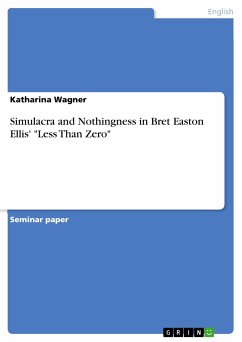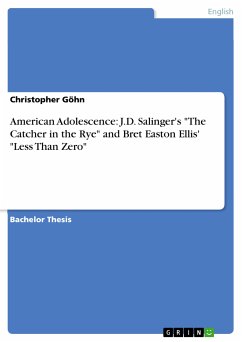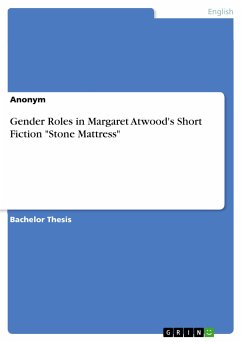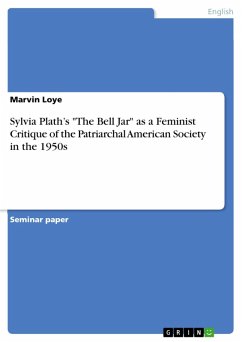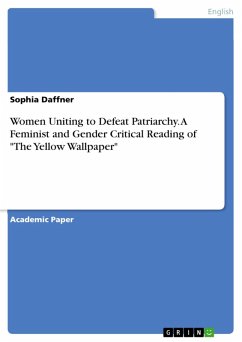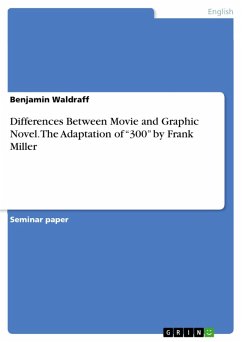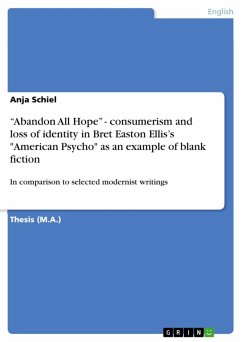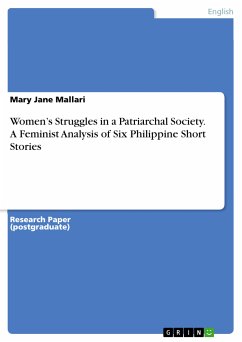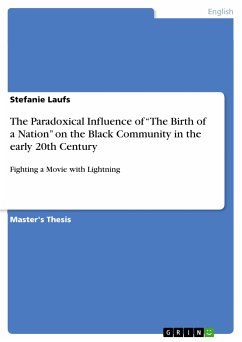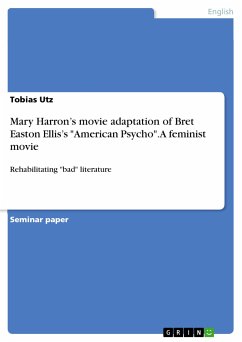
Mary Harron's movie adaptation of Bret Easton Ellis's "American Psycho". A feminist movie (eBook, PDF)
Rehabilitating "bad" literature

PAYBACK Punkte
0 °P sammeln!
Seminar paper from the year 2013 in the subject American Studies - Literature, grade: 1,0, Catholic University Eichstätt-Ingolstadt, language: English, abstract: "I'm always shocked when people want to make movies out of my books. [...] They have cinematic scenes, they have a lot of dialogue, but often they don't have that narrative momentum a movie needs" (Shulman, par. 12), said Bret Easton Ellis, the author of the novel American Psycho, in an interview about movie adaptations of his books. Ellis wrote a total of seven novels and became one of the most famous authors of postmodern American ...
Seminar paper from the year 2013 in the subject American Studies - Literature, grade: 1,0, Catholic University Eichstätt-Ingolstadt, language: English, abstract: "I'm always shocked when people want to make movies out of my books. [...] They have cinematic scenes, they have a lot of dialogue, but often they don't have that narrative momentum a movie needs" (Shulman, par. 12), said Bret Easton Ellis, the author of the novel American Psycho, in an interview about movie adaptations of his books. Ellis wrote a total of seven novels and became one of the most famous authors of postmodern American literature. His third novel American Psycho was published in 1991 and turned into a movie in 2000 by Mary Harron. Yet, the missing narrative momentum Ellis mentioned was not Harron's only problem while adapting the novel. When American Psycho was published in 1991, it was not well received. Because of its extremely graphic scenes of violence and pornography the novel caused a chorus of outrage among critics. Female activist groups complained that it was "a how-to novel on the torture and dismemberment of women" (McDowell, par. 1). Ellis even received death threats and had to face furious outcries from women... Ellis was surprised that the novel provoked such reactions because he intended the novel to be a black comedy and a critique of the capitalist society in New York City in the 1980s. His intention was to decry the greed, envy and the urge for conformity present at Wall Street at that time. However, the satiric elements of his novel were almost completely overshadowed by the violent and pornographic passages which led many people to misinterpret the novel's message. The reactions to Mary Harron's movie adaptation of American Psycho were much friendlier: Watching "American Psycho" is like witnessing a bravura sleight-of-hand feat. In adapting Bret Easton Ellis's turgid, gory 1991 novel to the screen, the director Mary Harron has boiled a bloated stew of brand names and butchery into a lean and mean horror comedy classic. (Holden, par. 1) In view of this change of opinion from the novel to the movie adaptation, it is justified to take a closer look at how Harron adapted Ellis's novel. In the framework of the seminar "Literature and Media: A Kaleidoscope", this paper analyzes the rehabilitation of the novel focusing on internal changes and the resulting changes in the effect on the audience. Mary Harron rehabilitated American Psycho by turning it into a feminist movie.
Dieser Download kann aus rechtlichen Gründen nur mit Rechnungsadresse in A, B, BG, CY, CZ, D, DK, EW, E, FIN, F, GR, HR, H, IRL, I, LT, L, LR, M, NL, PL, P, R, S, SLO, SK ausgeliefert werden.




